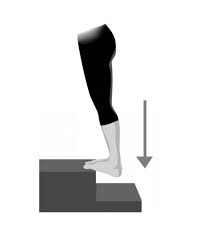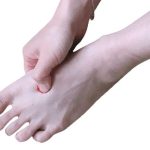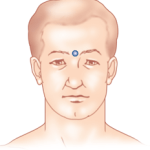Many people wake up during the night with painful leg cramps especially those over the age of 50. This happens when the calf muscle within the leg contracts on its own and can be extremely painful. If this happens you usually must move your leg around and pull upwards on your toes to try and release the cramp by stretching the calf out. Nighttime leg cramps are actually caused by a magnesium mineral deficiency which causes too much calcium to enter the muscle triggering a cramp and prevents the muscle from relaxing. In more severe cases a cramp can leave your legs feeling painful for days afterwards.
What is magnesium?
It is a very important mineral for the human body which plays a role in 300 enzyme reactions in the body. One of its main functions is helping with muscle and nerve function along with regulating blood pressure. It works with other minerals like calcium and potassium to relax and contract the muscles of your body. When you do not have enough magnesium in your blood the legs tend to cramp up at night especially when laying down flat in bed.
Why am I low in magnesium?
- Over 50% of the population is deficient in magnesium usually because they do not consume enough leafy, green vegetables.
- Drinking alcohol and consuming refined foods like flour, sugar, bread, cereal, white rice, and caffeinated drinks all deplete your magnesium reserves.
- High levels of mental stress or overtraining when you exercise can also cause a deficiency in magnesium leading to leg cramps during the night.
- Low stomach acid – in order to absorb magnesium your stomach needs to be very acidic in its natural range of one to three on pH scale. As we get older however we tend to lose stomach acid which causes acid reflux, indigestion, heartburn, and gas. When the stomach acid is low you can’t absorb magnesium and other nutrients properly which stops them from reaching the muscles in your legs.
How do I absorb more magnesium?
There are three key steps that you can take to stop these muscle cramps by absorbing more magnesium into your bloodstream.
- Stop consuming antacid drugs as these neutralize your important stomach acid. Instead consume apple cider vinegar capsules and digestive enzymes before each meal. These are natural and restore digestion, heal acid reflux, and GERD. They also restore your pH balance in the stomach so that you can absorb magnesium from your food.
- Consume foods rich in magnesium every single day such as pumpkin seeds, sunflower seeds, avocados, and lots of leafy green vegetables like swiss chard, kale, broccoli, and okra. Magnesium is at the heart of the green pigment found in plants called chlorophyll. This helps to block calcium channels in muscles when needed in order to relax the muscles in your legs at night.
- Reduce refined foods from your diet especially alcohol and soda drinks because these deplete your magnesium reserves. Flour based foods like bread, biscuits, pastries, and cereal also deplete your magnesium reserves. You should also cut down on caffeine because this causes you to lose magnesium through your urine.
Benefits of Magnesium
By following these three key steps above your body will soon begin to digest and absorb more magnesium naturally from the foods that you eat. Soon you will notice improvements as the magnesium and other minerals start doing their job in supporting proper muscle contraction and relaxation. Cramps during the night will begin to diminish helping you to enjoy a more peaceful night sleep without concern. You will also feel more relaxed and calmer because the magnesium has been shown to reduce stress hormones and treat anxiety.
Other Helpful Tips
Before going to bed you can perform a stretch on the calf muscle. Simply place your toes over the edge of a step. Slowly dip your heel downwards allowing your calf muscles to stretch out. Hold for a few seconds and then repeat it three to four times. This exercise only takes about 2 minutes but gently stretches your calf muscles to promote blood flow into them. This helps to prevent leg cramps especially if you have performed lots of exercise and may have depleted some of your minerals. Also try staying hydrated as dehydration can restrict proper blood flow to the muscle.
Supplements To Prevent Leg Cramps
- Taking a daily supplement of magnesium citrate will give you the most bioavailable form of magnesium which can quickly be absorbed in the digestive tract. This supplement helps to prevent leg cramps, soothe tired muscles, relax the nerves in the body, and reduce stress.
- Apple cider vinegar take 1-3 capsules of apple cider vinegar before each meal. This strengthens your stomach acid which allows you to absorb more minerals and nutrients. This alone often helps to relieve muscle cramps by aiding digestion and balancing the pH level of the blood. You could also take one tablespoon of liquid apple cider vinegar mixed in glass of water if you prefer.
- Vitamin D3 – over 1 billion people worldwide are deficient in vitamin D because we do not get enough sunshine on our skin. Taking vitamin D3 daily helps your body to absorb magnesium and use it properly. Vitamin D also reduces stiffness in the muscles especially in the morning.
These supplements all work together in the body to boost your magnesium levels which directly reduces leg cramps within a few days to a couple of weeks. Magnesium takes time to be broken down and metabolized by the body which is why you should be eating lots of leafy green vegetables on a daily basis to meet your requirements.
Potassium Versus Magnesium Leg Cramps
If your leg cramps occur during the night when you are resting then you can ascertain that this is due to a magnesium deficiency. However, if you get cramping during exercise or when you’re active in the day then you are likely to be low in potassium, another mineral which works with the muscles. Luckily potassium is absorbed much more easily than magnesium by simply drinking a sports drink, eating an avocado, or taking some potassium citrate which will resolve these types of cramps within minutes. Magnesium cramps during the night take longer to address because it takes more time for your body to absorb and mobilize magnesium.





















